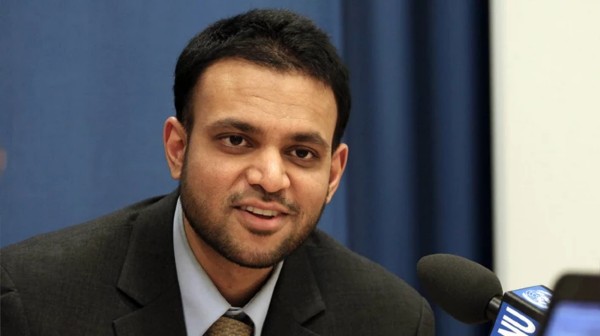
A World of Faith
The appointment of Rashad Hussain as the new U.S. ambassador for international religious freedom will radically address global pandemic persecution.
Freedom of religion is a global human right that should not escape the list of priorities held by governing officials.
After several months of consideration, the United States Senate on Dec. 16 appointed Rashad Hussain as the new Ambassador-at-Large for International Religious Freedom, the first Muslim American to have the role.
Global persecution of people of faith has massively increased throughout the pandemic. Intolerance and bloodshed of Muslims and Christians in countries like China and Nigeria has only led to more political outcry.
Yet, in November, Politico reported Nigeria was removed from the U.S. list of countries who face religious persecution by law or terrorists groups.
In the U.S, some states like California continually threatened faith-based institutions for their expressions of worship at the height of the COVID-19 pandemic in 2020.
Selecting a new Ambassador-at-Large for International Religious Freedom was part of a list of positions President Joe Biden needed to fill during his administration. Many civil and political advocates pushed for Hussain's appointment in December.
“The right to freedom of religion or belief is under sustained threat globally. With his years of knowledge and experience, Ambassador Hussain is well placed to advance the U.S. government’s promotion of international religious freedom,” said Nadine Maenza, chair of U.S. Commission on International Religious Freedom (USCIRF).
RELATED CONTENT
Hussain, a Virginia resident, received the nomination by the president on July 30, 2021.
According to White House records, Hussain was formerly the director for Partnerships and Global Engagement at the National Security Council. He also served as the Senior Counsel at the Department of Justice’s National Security Division, was U.S. Special Envoy to the Organization of Islamic Cooperation (OIC), and also had a role as U.S. Special Envoy for Strategic Counterterrorism Communications.
By religious groups and colleagues alike, Hussain has proved his ability to interact with international affairs using wise judgement, and defends all faiths rigorously.
Hussain has also spearheaded several efforts aimed to counter antisemitism and protect religious groups in Muslim-majority countries.
During his confirmation hearing, Hussain shared stats on religious persecution and his own personal experience in America.
“A staggering 80% of people worldwide live in environments with high or severe restrictions on religious freedom,” said Hussain to the Senate. “As a Muslim American, I have seen the impact of bigotry and guilt by association tactics used against minority communities, including the message it sends and dangers it poses to young people.”
Hussain understands what it’s like to be discriminated against for one’s faith. As the U.S. ambassador for international religious freedom, he will work across borders to eliminate inhumane treatment of people based on religion.










LEAVE A COMMENT:
Join the discussion! Leave a comment.